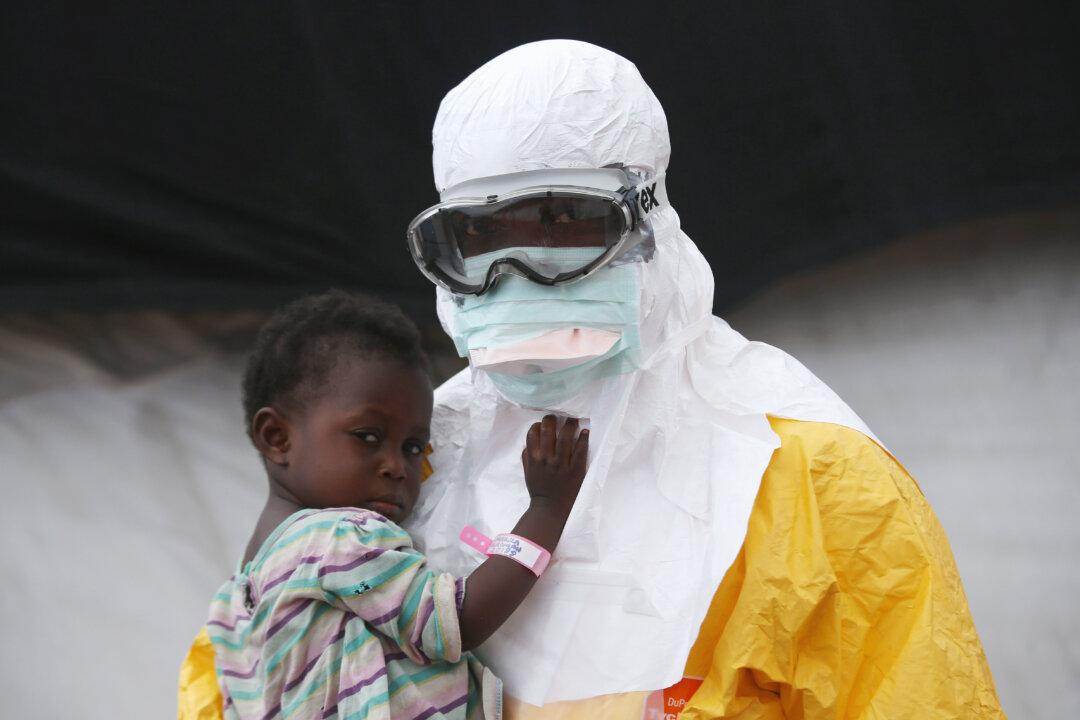New Ebola Case Emerges in Sierra Leone
A corpse has tested positive for Ebola in Sierra Leone, officials said Friday, the day after the World Health Organization declared the outbreak over in West Africa

A Doctors Without Borders (MSF), health worker in protective clothing holds a child suspected of having Ebola in the MSF treatment center on October 5, 2014 in Paynesville, Liberia. John Moore/Getty Images
|Updated:




